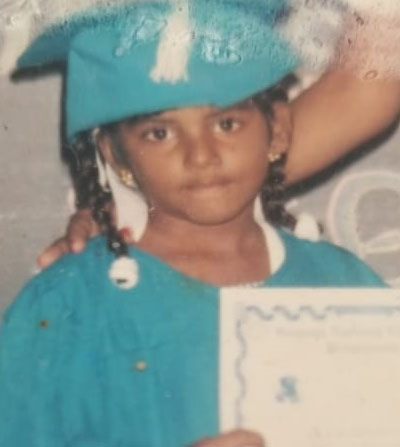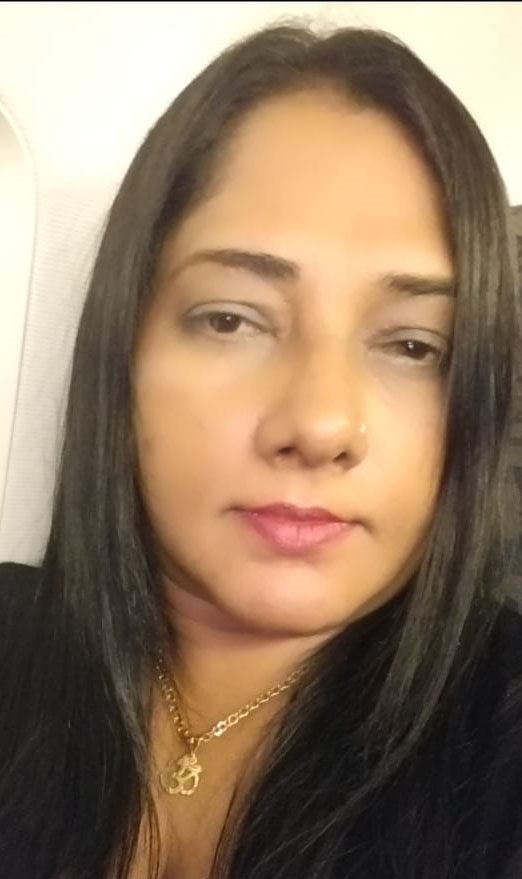When Sally Persaud learnt she had cervical cancer she immediately remembered her daughter Stephanie, who had died from ovarian cancer several years before and she believed that would have been her fate as well.
“I remember me daughter right away. I was so scared, and it was like I think that was it for me. Everything run back through my mind, you know she was just 11 years old,” the 47-year-old Persaud told Stabroek Weekend.
It was in 2019 that Persaud was diagnosed with cervical cancer and while it was not a surprise diagnosis, it was a frightening one. She has since had a hysterectomy and for almost a year life has been back to normal.

Persaud is one of the many women in Guyana who have been diagnosed with cervical cancer. According to 2017 figures from the Guyana Cancer Registry, it is the second most common cancer in Guyana, with breast cancer being the most prevalent. According to the registry’s figures, 118, 113, 68, 72 and 163 cases were recorded for the years 2013, 2014, 2015, 2016 and 2017, respectively. From 2013 to 2016, 34, 13, 23 and 21 women died annually.
It was back in 2016 that Persaud decided to have a pap smear test (a papanicolaou test is a method of cervical screening used to detect potentially precancerous and cancerous processes in the cervix, which is the opening of the uterus or womb) and it was then she was informed that pre-cancerous cells were detected.
“I become scared by they say they will freeze it right away and everything will be alright,” she recalled.
She was told to return three years later and when she did in 2018 she got a negative result. All this was done at the Georgetown Public Hospital.
But last year, Persaud realised that she was bleeding abnormally. “I was bleeding heavy and my period was not coming when it was supposed to and I knew something was wrong,” she said.
She visited a private doctor and a test was done and she was told to return within a week for the result. She was sitting in the doctor’s office, her husband by her side, when she was given the dreadful news and she remembered that she was shocked and immediately started to sob. The doctor told her that she needed to have a surgery done but Persaud hesitated as she was scared.
“I didn’t want to do it, but after talking to family members and friends they encourage me,” she said.
Shortly after, Persaud said she started to bleed more and was forced to return to the doctor, who informed her that she needed emergency surgery if she wanted to live. The very next day the surgery was done, and the cancer survivor was hospitalised for one week.
The hysterectomy was done in August 2019 and a follow-up visit showed that she was free of cancer. She did not have contend with chemotherapy or radiation, for which Persaud said she is grateful.
“Sometimes I feel strange, just because I know it happen. But it is nothing really strange it is just that you not seeing your period anymore and sometimes I would sweat a lot,” she shared.
Stephanie
The mother of two daughters, ages 22 and 12, said that during the period of her diagnosis and surgery she painfully recalled how she lost her daughter, Stephanie, to cancer when she was just 11 years old.
It was in 2005 and even today Persaud cannot understand how her daughter was just taken away from her in a matter of months after being diagnosed with ovarian cancer. She recalled that the child showed no symptoms prior and by the time she was diagnosed it was too late.
Stephanie was successful at her secondary school entrance examination and her father had taken her to Suriname as a reward and it was while on the trip that she started to cry out for a pain in her stomach and a lump was also felt. She was taken to a doctor in Suriname and cancer was suspected and immediately the trip had to be cut short.
“We went to private hospitals and they picked it up and I can’t tell how I felt. That thing caused me to get a nervous breakdown. She was our first child and you know she did so well at the common entrance and was just excited to go to secondary school,” the mother said sadly.
It was in August she was diagnosed and by October the same year she died. She recalled that in the months her daughter lived with the cancer she was in excruciating pain and her “tummy had swollen high, high like if she was nine months pregnant”. The family had even taken her to Barbados in desperation, but they were told there was nothing that could have been done for her and they were forced to charter a plane to bring her back to Guyana because of her worsening condition. Two days later Stephanie died.
“It was really hard. I can never forget my daughter, when it is her birthday or the day she died it does really be sad…,” she said.
Her diagnosis brought back all of the memories but Persaud said she is thankful for family and friends who supported her throughout and kept her positive.
Persaud is encouraging every woman to have a cervical cancer test done every six months. Since the novel coronavirus came to Guyana, Persaud has not returned to her stall in the Mon Repos Market as she said she prefers to stay home and be safe.
In the meantime, she has been planting in her kitchen garden and busying herself in the kitchen. “I find things to do. I bake and so on and I am not going out. I am home all the time,” she said, but added that her 12-year-old daughter is a little worried as she is not getting schoolwork from her school and she longs to return to the classroom.
Persaud is encouraging other cancer survivors, especially those who have had chemotherapy and radiation, to remain safe and not to take chances.
The same sentiments were echoed by Bibi Hassan, head of the Guyana Cancer Foundation, who encourages them to take the necessary measures and to follow all protocols. She said while the office of the Foundation has been closed because of COVID-19, she is still assisting with a few care packages for some survivors. She is also available to give moral support for those in need.
If you are a survivor and need support, contact Hassan on 618-2085.
No systematic reports
According to the European Society for Medical Oncology, while so far no systematic reports are available regarding a higher incidence of COVID-19 in patients with cancer, recent limited data from China, and more recently from Italy and the US, do however seem to confirm a higher risk.
The society says that available data indicate that older people, particularly those with underlying health conditions such as chronic respiratory, cardiovascular, or chronic kidney disease, diabetes, active cancer, and more generally severe chronic diseases, are more vulnerable.
Two groups of patients have been identified: “patients off therapy” (A) who have completed a treatment or have disease under control (off therapy); and patients under treatment (B). For all patients (A and B) it is mandatory to provide health education and for them to avoid crowded places, wear protective personal equipment (PPE) when they attend hospital for visits and treatments, correctly wash their hands, according to World Health Organization guidelines, and not have contacts with friends and relatives with COVID-19 symptoms. They must also guarantee social distancing with all people to protect themselves and others.
The society says that in cancer patients, categories at risk include:
● Patients receiving chemotherapy, or who have
received chemotherapy in the last 3 months
● Patients receiving extensive radiotherapy
● People who have had bone marrow or stem cell transplants
in the last 6 months, or who are still
taking immunosuppressive drugs
● People with some types of blood or lymphatic
system cancer which damage the immune
system, even if they have not needed treatment
(for example, chronic leukaemia, lymphoma or
myeloma).






